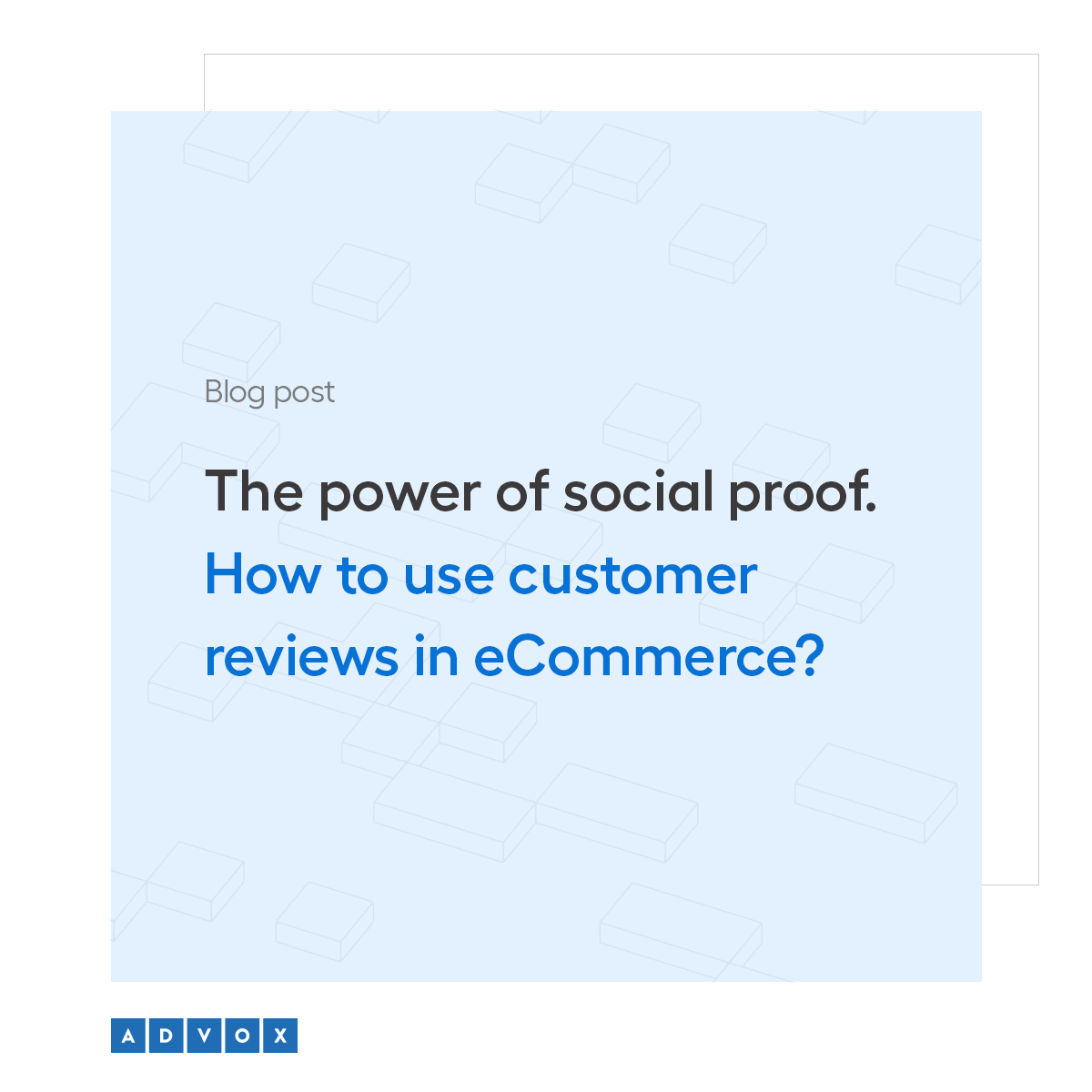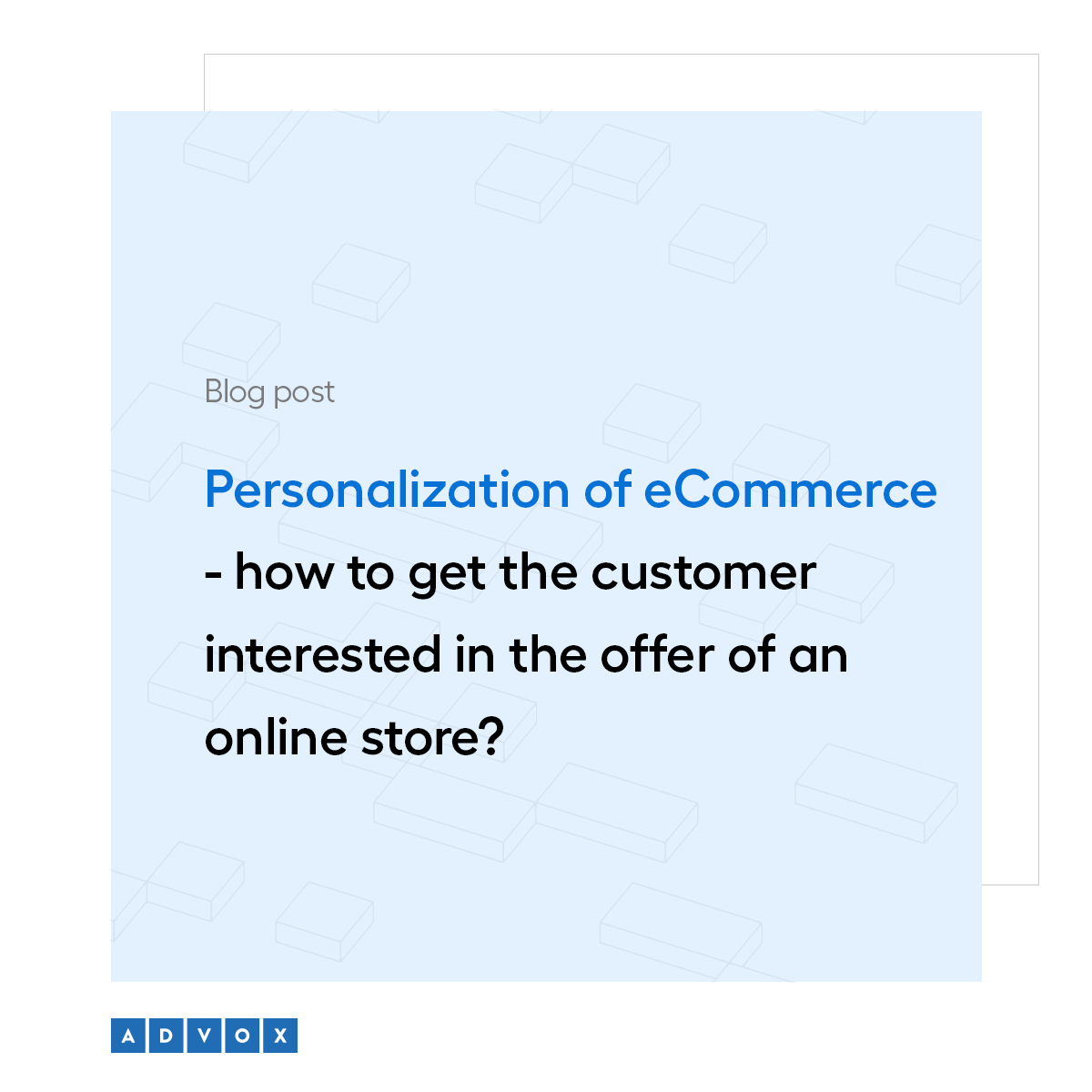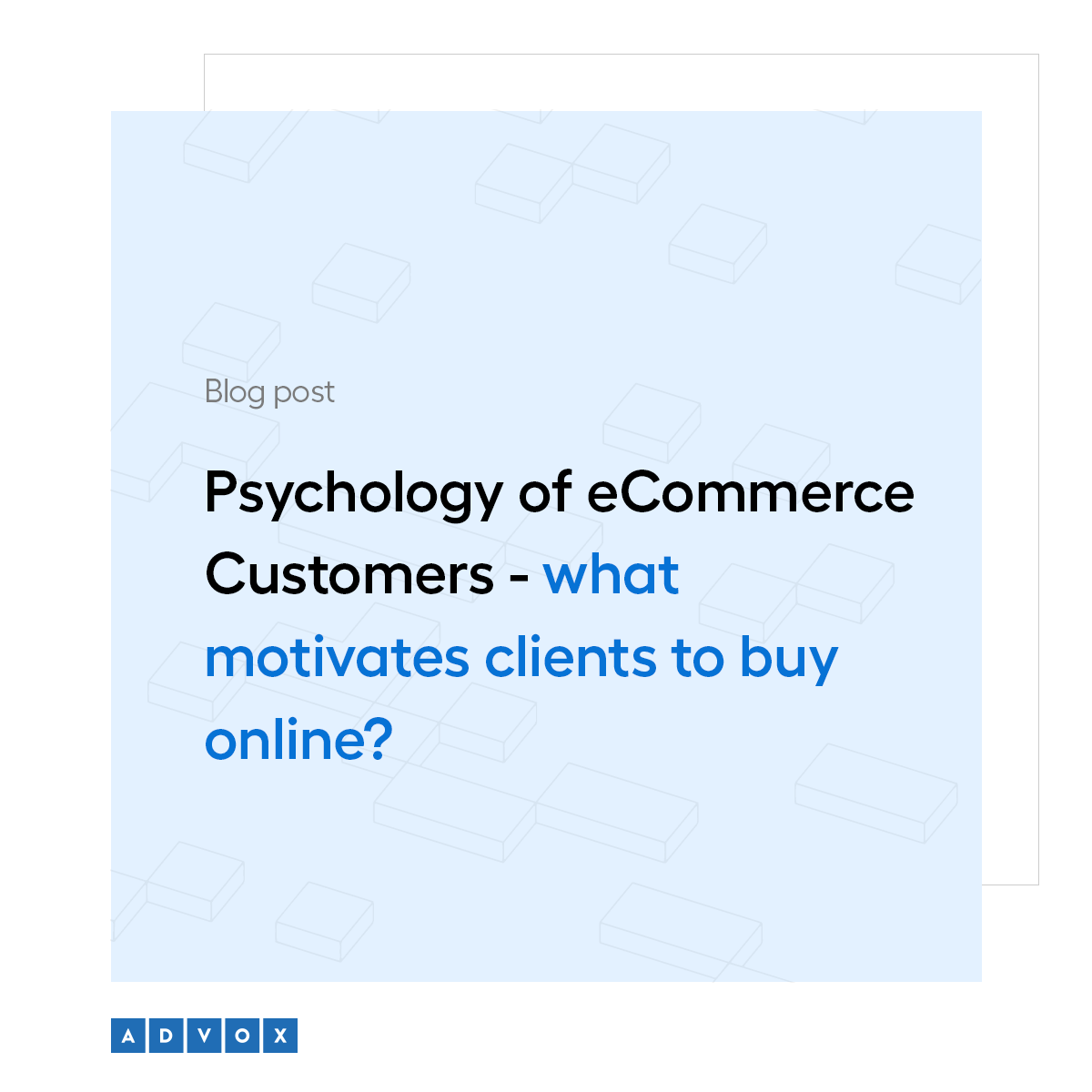Table of contents
- Personalization in eCommerce – why is it so important?
- Privacy vs Personalization – what matters more to online shoppers?
- Personalization in online stores – the biggest challenges in 2024
- Personalise to sell according to customer expectations
- personalised content - virtually most of the content can be personalised, from dynamic homepages that change displayed products based on previous interactions to individually tailored marketing emails.
- product recommendations - algorithms can display products based on browsing and purchase history, helping the customer discover new items and find exactly what they were looking for (and place orders faster).
- personalised promotions and offers - customers can be offered special discounts on products they frequently view or add to their cart, or on complementary items to their ordered products, which can increase both the chances of purchase and the cart value.
- search results - intelligent search engines in the online store can display results more likely to interest the customer higher up.
- order completion - remembering preferred payment methods, auto-filling forms, or adjusting delivery options to the customer's preferences (e.g., suggesting preferred delivery times) are details that significantly increase customer satisfaction.
- what data is collected?
- how will the data be used?
- with whom data may be shared?
- what safeguards are in place to protect users' privacy?
- Managing large amounts of data - effective personalization requires analysing large datasets generated by customer interactions on eCommerce platforms. The challenge lies not only in collecting these data but also in managing and analysing them in a way that allows for accurate conclusions and their quick and effective use. AI-based tools are becoming increasingly helpful in this regard.
- Misunderstanding customer needs - relying only on indirect data (like browsing history) can lead companies to misinterpret customer interests, resulting in offering inappropriate products. For example, imagine a scenario where a customer, searching for a gift for a loved one, browses beauty products. From that moment, similar products are constantly recommended, even though the gift has already been purchased. Such situations can lead to frustration and make the customer stop visiting the site.
- Changes in law - in recent years, there has been an increase in privacy regulations, such as GDPR in Europe or CCPA in USA. These regulations impose numerous obligations on online businesses related to personal data processing, complicating personalization processes.
- Keeping data updated - as the variety of devices and channels customers use increases, integrating data to create a consistent and up-to-date customer profile becomes more challenging. This often requires advanced analytical systems that not only collect data from various sources but also update and use it in real-time.
- Security threats - the increase in stored personal data also comes with a higher risk of cyberattacks. Therefore, it is crucial that the platform is prepared to protect both customer and company data from breaches that could harm their reputation and lead to significant financial losses.
According to the SalesForce "State of Service" report, over half of customers (53%) and nearly three-quarters of business clients (73%) expect companies to anticipate their needs. Is achieving such an outcome even possible? Yes, but only if you know how to leverage personalization in your online store. From product recommendations to special offers and promotions, tailoring the shopping experience to individual needs can bring significant benefits. What kind of benefits? In this article, we'll discuss how personalization can improve loyalty and boost sales in your online store. We'll also look at the challenges of personalization and offer practical tips to help you implement this strategy. Curious? Read on!
Personalization in eCommerce – why is it so important?
Customers have access to countless product and service offers online – with such diversity, even the best product can't "sell itself." An element is needed to make a brand stand out from the competition. Increasingly, that element is personalization, but what exactly is it, and how can it be used in eCommerce?
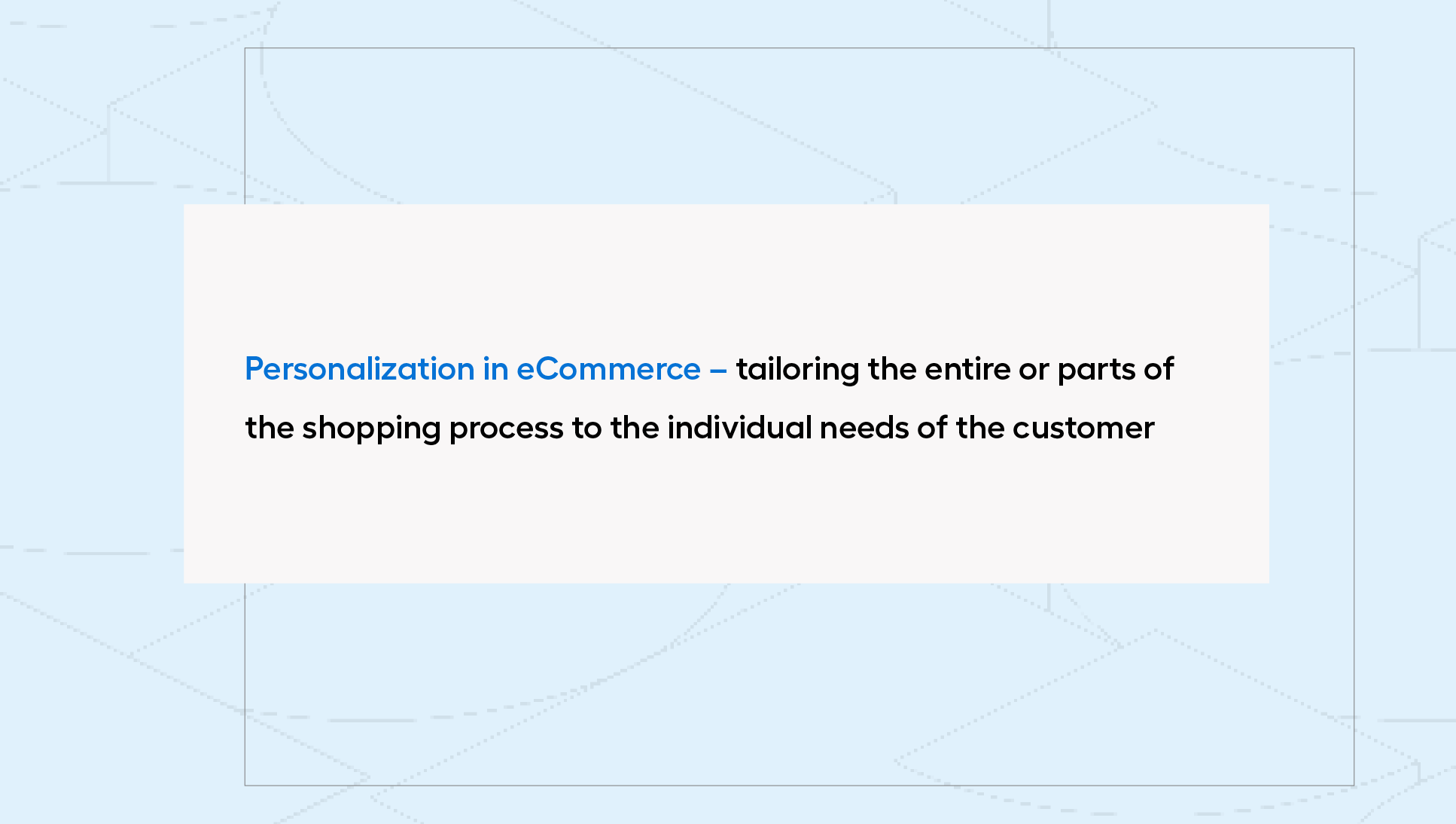
Personalization in eCommerce stands out by tailoring the entire shopping process to the individual needs of each customer – from the moment they enter the website to completing the order. This is primarily possible through the analysis of data regarding buyers' behaviours and preferences. By monitoring how users navigate the site, what products they view, and what they add to their cart, it is possible to more accurately predict their future needs.
Personalization can include elements such as:
Privacy vs Personalization – what matters more to online shoppers?
In the digital world, every step on the internet leaves a so-called "digital footprint." From entering queries into search engines to filling out forms (e.g., in an online store) to clicking on links – all these actions generate vast amounts of data. This can include information on content viewed on social media and more sensitive data like home addresses or payment card numbers. In such an extensive sea of information, the question arises: is there still room for privacy online?
With growing awareness of online threats, more users are starting to pay attention to the need to protect their personal data. They expect their privacy to be respected and reasonably share their information. However, this does not mean they are entirely unwilling to share their data. Despite growing privacy concerns, many consumers are still willing to share their data if it brings them tangible benefits. A BCG study showed that as many as 90% of customers are willing to exchange data for personalised offers that meet their needs and preferences.
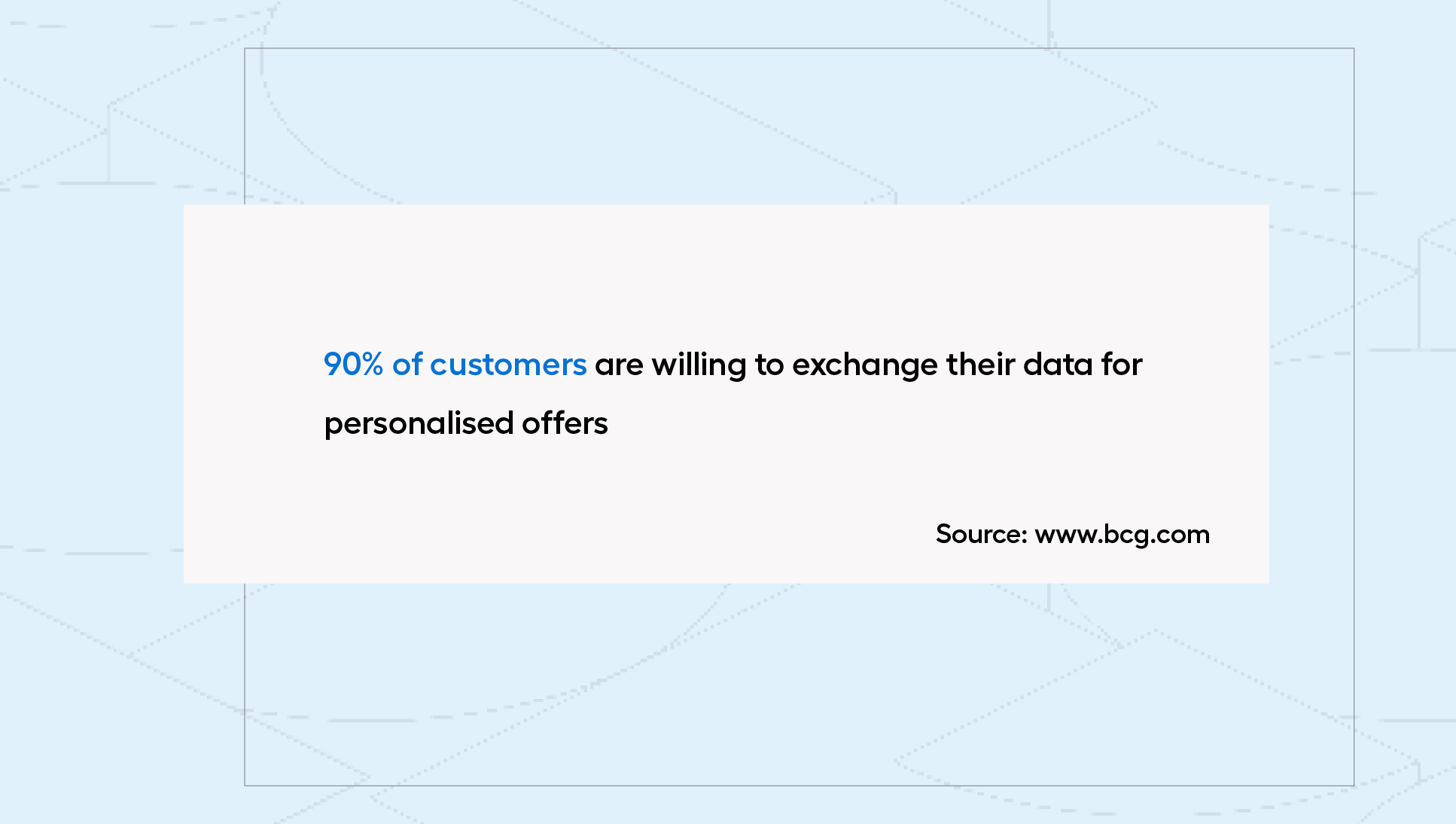
This awareness is crucial to maintaining a balance between ensuring personalization and protecting customer privacy. Besides skillfully collecting and using data in this context, maintaining transparency is equally important. Online stores should clearly communicate:
Such information helps consumers feel comfortable sharing their data. At the same time, maintaining transparency requires continuous monitoring of changing legal regulations and customer expectations, which poses an additional challenge in the dynamic world of eCommerce. However, if these elements are well-managed, personalization and privacy protection do not have to be mutually exclusive but can coexist.
Personalization in online stores – the biggest challenges in 2024
Personalization is not just a passing trend but an essential part of the sales strategy for many online stores. It not only helps generate more sales but also builds a loyal and trusted customer base. However, opting for its implementation comes with several challenges:
Personalise to sell according to customer expectations
In a crowded digital world where customers have countless options, personalization can bring them closer to making purchases in your e-store. However, to ensure proper implementation, you must be ready to face many challenges, such as privacy protection, data analysis, or misidentifying customer needs. Preparing for these challenges requires strategic planning and continuous adjustment of business practices to the rapidly changing eCommerce environment. Want to tackle these challenges and reap the benefits of higher conversions and increased loyalty? We'd be happy to help – contact us!
